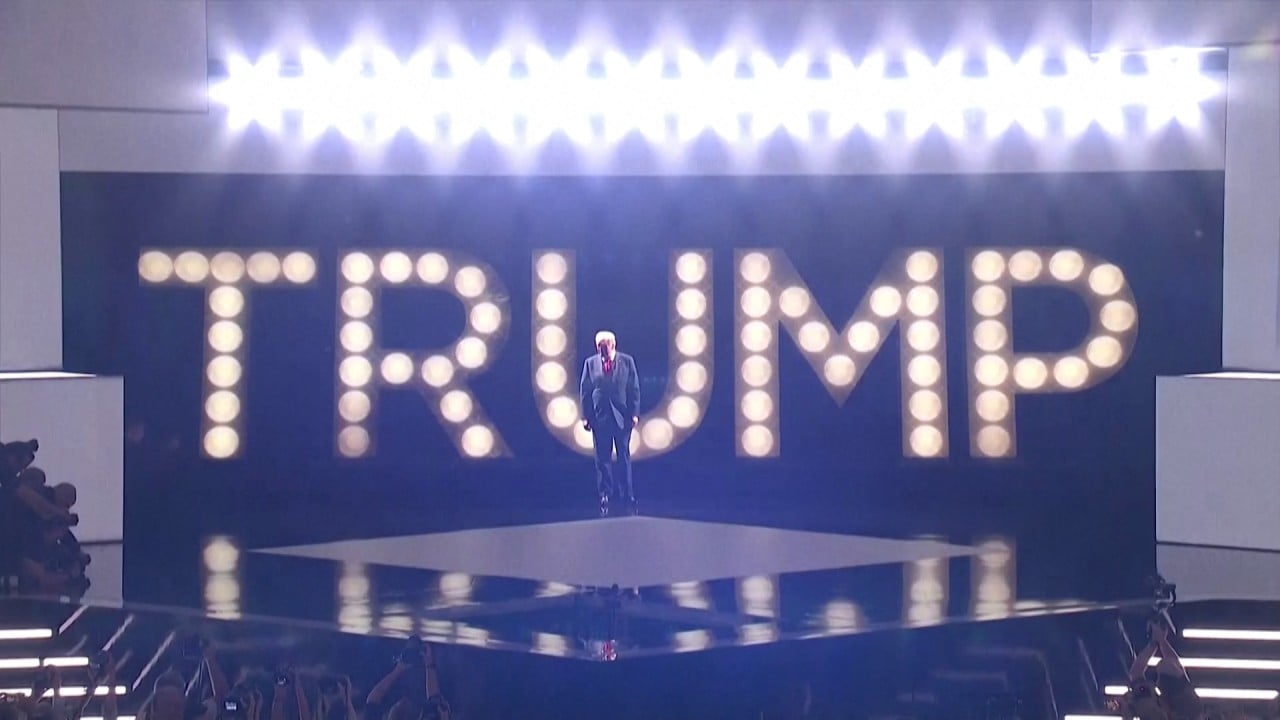The vice-president’s speech on Thursday quickly turned into a critique of her opponent. Warning of the dangers of a second Trump term, she called the Republican nominee an “unserious man”, someone who “would use the immense powers of the presidency of the United States … not to strengthen our national security, but to serve the only client he has ever had: himself.”
A staunch advocate for reproductive freedom during her time in the Senate, Harris has reiterated her commitment to the issue, blaming Trump for the repeal of “Roe vs Wade” and pledging to sign a bill codifying abortion rights into law if it passes Congress.
Harris also presented a plan for an “opportunity economy”, focusing on job creation, affordable healthcare, housing and protecting social security. She pledged to work with small businesses and US companies to reduce living costs and support entrepreneurs.
Often criticised for her lack of foreign policy experience, the Democratic nominee said the US would “strengthen, not abdicate, our global leadership” under her administration.
She accused Trump of being “easy to manipulate with flattery and favours” and vowed she would not “cosy up to tyrants and dictators”.
“Trump won’t hold autocrats accountable because he wants to be an autocrat himself,” she said.
“As president, I will never waver in defence of America’s security and ideals, because in the enduring struggle between democracy and tyranny, I know where I stand and I know where the United States belongs.”
Harris said she had helped the Biden administration “mobilise a global response – over 50 countries – to defend against Putin’s aggression” and intended to continue aid to Ukraine and coordination with Nato allies if elected in November.
She also said she would “always stand up for Israel’s right to defend itself, and … always ensure that Israel has the ability to defend itself,” but that she was working to ensure that “the suffering in Gaza ends, and the Palestinian people can realise their right to dignity, security, freedom and self-determination”.
While China did not feature prominently in her speech, it is expected to be a major topic during debates agreed to between Harris and Trump, the first of which is set for September 10.
If Harris wins on November 5 her policy toward China is expected to edge away from Biden’s incrementally, if at all, analysts said.
“I expect a lot of continuity,” said Bonnie Glaser, managing director at the German Marshall Fund of the United States. “Continued focus on competition, restrictions on technology, bolstering alliances, targeted dialogues with China on issues that serve US interests. Possibly greater attention to human rights.”
The Democratic Party platform, released on Sunday in advance of the convention, provided little insight into any differences Harris might hold from Biden’s policies regarding Beijing or the Indo-Pacific region.
The 91-page document includes fewer than two pages on China. It outlines familiar hallmarks of Biden policy: close coordination with allies to address “intense strategic competition” with Beijing; continued resistance to Chinese coercion and unfair trade practices; a stronger US industrial base; and cooperation with China where possible on climate, fentanyl and artificial intelligence.
“We will guard against China taking advantage of America’s openness to use US technologies against America, our allies, and our interests,” it said.
The document frequently refers to a second Biden term, reflecting how quickly the party pivoted a month ago from Biden to Harris. Analysts said the errors suggested that the platform was approved before Biden bowed out and never revised.
The party platform also expressed robust, continued support for the defence agreement between Washington, Seoul and Tokyo.
“By bolstering our trilateral cooperation with South Korea and Japan, we are maintaining peace and stability in the Korean peninsula and beyond,” the document said.
Beijing has interpreted “beyond” to include moves to pressure China.
“I suspect the language championing the South Korea-Japan-US trilateral mechanism will irritate Beijing and underscores why a second Trump presidency is not all bad from China’s perspective,” said Jeremy Chan, a senior China analyst at the Eurasia Group.
Walz also learned some Mandarin and Cantonese.
“So he might play a more active role on the file than other foreign policy issues,” Chan said.
A source close to the Harris campaign said Harris had a “close, personal relationship” with Philippines President Ferdinand Marcos Jnr, whom she has met a handful of times, more than other Asian leaders.
It is unclear whether this would generate any shift in US support for Manila in the South China Sea, although it is difficult to imagine Washington softening its position under Harris.
While Trump and Biden have little in common, they share the same doubts about China. Biden has largely continued Trump’s policy against China, and has even taken it further.
However, Trump’s approach and policies regarding China during a potential second presidential term remain uncertain.
The former president’s “America First” foreign policy has unsettled US allies, even as he has threatened to enact tariffs of 60 per cent on all Chinese imports and up to 200 per cent on all imported vehicles, including those from China.
“That will devastate Americans.”



